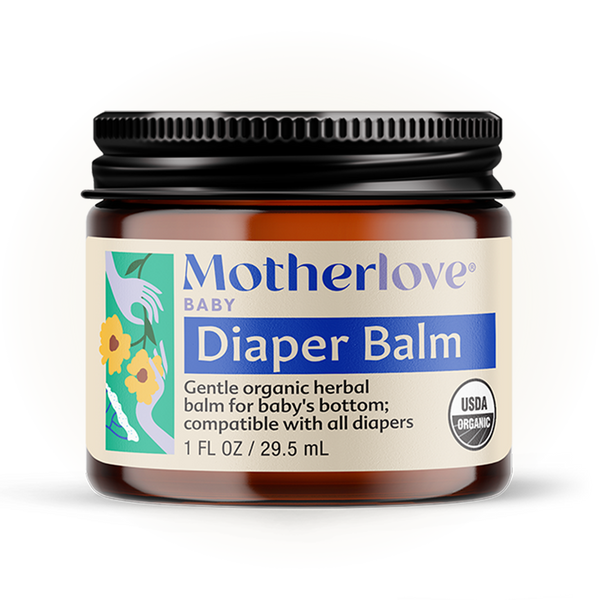Written by: Wendy, IBCLC
Having a non-latching baby can be super stressful—and this issue can come up at various times during your breastfeeding journey. Personally, my first baby refused the breast right after birth, then again during the evenings as a fussy, colicky newborn. My second baby latched happily during the newborn period, but would refuse the breast while teething. Go figure…
The point is that it’s quite common to have this problem and you can’t always predict when it’s going to happen, so it’s best to be prepared. Here’s a “cheat sheet” for how to deal with a non-latching baby at various points in the course of breastfeeding.
WHAT TO DO IF YOUR BABY WON'T LATCH SOON AFTER BIRTH
There are many reasons why a newborn might not latch onto the breast at first. This may have trouble because of a tongue tie or cleft palate. If you have very flat nipples, latching can be challenging at first. Additionally, babies who are premature or jaundiced may have sucking difficulties. Sometimes breastfeeding parents and their little ones just need a few days to figure latching out.
Regardless, having a non-latching newborn can feel extremely defeating. You may feel hopeless about your ability to ever breastfeed. Remember, though, that this is just the beginning, and there is time to get this right.
In the meantime, if your baby isn’t latching at all, you need to make sure they are fed. That usually means feeding them your pumped milk. If you are having trouble pumping, ask your healthcare provider about the best way to supplement your baby. Pumping is also important to establish and keep up your milk supply while you work on the latching thing.
Often, figuring out the latch is just something that takes time. You will likely need hands-on help from a breastfeeding specialist to get you on track. You’d be surprised what difference various holds and positions can make for you and your baby. A breastfeeding professional can also assess whether your baby has any conditions that may make suckling difficult and how to address them.
As you wait for your baby to learn to latch, spend time skin-to-skin together. This can help your baby tap into some of their nursing instincts. Let your baby explore the breast (lick, smell, nestle near it) without pressure to latch. You never know—they might just latch right on before your eyes.
WHAT TO DO IF YOUR 1-4 MONTH-OLD WON'T LATCH AND IS FUSSY
It’s super common for babies to have a few weeks of being extremely fussy. This is usually after a period of being mostly a floppy, sleepy newborn. A few weeks after birth, babies tend to wake up a bit, sort of figure out that the world is a strange, disorganized place (as compared to the womb) and basically fuss and complain. This crankiness often happens in the evenings.
One symptom of the fussy newborn period is that as your baby fusses, they may totally refuse the breast. They may be fine with nursing in the morning and early afternoon, but as soon as the witching hour strikes, they may push your breast away or cry every time you offer it to them. You can rest assured this is normal, though it’s still very frustrating.
If this happens, try to take a deep breath, and then take a few moments to do something besides breastfeeding. Yes, you want to feed your baby if they seem hungry, but you can’t feed a baby who is fussy or crying. They simply won’t be settled enough to do the work of suckling. So you want to calm your baby down first. This may mean bouncing or shushing them. Going outside for a walk can work wonders. You can also try winding them down by having them suck on your finger, and then switching to the breast when they are calm enough to nurse.
Mostly, keep the faith, and remember this isn’t about your baby hating breastfeeding—it’s just a fussy phase. If you have any medical concerns about your baby, definitely reach out to their pediatrician.
WHAT TO DO IF YOUR FORMERLY HAPPY NURSLING SUDDENLY WON'T LATCH
If you’ve been happily nursing for a few months and your baby suddenly wants nothing to do with breastfeeding, it doesn’t mean that they are weaning, especially if they are under 12 months or so. What’s usually going on is that your baby is having a nursing strike.
Nursing strikes are usually caused by some sort of disruption or disturbance, though it’s not always possible for parents to figure out what that is. Sometimes babies strike because they are teething, there is stress and upheaval at home, they have an upset tummy, or something stressful happened during breastfeeding, like their parent screaming after being bit.
The number one thing to keep in mind is that if your baby is having a nursing strike, they will more than likely come back to the breast soon. You just have to be patient. It’s important to pump for however long they strike, to keep up your milk supply. You also want to keep your baby fed with pumped milk (or solids, if they are eating them).
Then, you want to offer them the breast, but be choosy about when you do that. Don’t offer when you know they are cranky. It can be helpful to offer the breast in a location different from where you normally feed. Some parents have found success offering the breast in the bath! Or outside! One of my favorite times to offer a striking baby the breast is when they first wake up or in the middle of a nap—they are more likely to forget what they are so upset about when they are sleepy.
WHAT TO DO IF YOUR OLDER BABY REFUSES TO LATCH
If you have a baby who is 12 months or older and is refusing to breastfeed, you might assume they are weaning or have weaned. While weaning can sometimes happen abruptly, usually weaning is a long, gradual process, with children dropping breastfeeding sessions one by one over several months or years. Moreover, although there isn’t a strict consensus on when “natural weaning” happens, most experts agree that it happens sometime between the age two and four and that most older babies or young toddlers don’t self-wean.
If you’ve got an older baby who is suddenly not nursing and you are eager to stop breastfeeding, it’s okay if you don’t try to woo them back to the breast and just use this time as a way to end things for you both. Keep in mind that your baby may very well come back to the breast on their own, so don’t count your chickens before they hatch.
For a baby who doesn’t seem old enough or ready enough to wean, you can treat what is happening like a nursing strike and use the above tips to get your little one back to nursing. You probably don’t need to pump quite as much as when your baby was younger, but you will want to pump if the refusal lasts more than a day or two.
As with all these breast refusal/latching issues, getting support is so important. Dealing with a baby who isn’t latching can be soul crushing, and it’s normal to have all kinds of challenging feelings. You aren’t alone, though, and help and support is out there for getting through this.
Joining a breastfeeding support group is a great idea, because hearing other parents’ stories around this issue can be informative and uplifting. Reaching out to a lactation professional is also an excellent idea. Breastfeeding helpers will have tips specific for your particular situation and can help you troubleshoot the latching issues you and your baby are facing.







